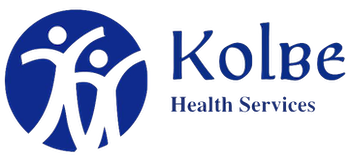
How Naltrexone Therapy is Used for Alcoholism
July 7, 2022
What is Outpatient Mental Health Treatment?
March 20, 2023Every addiction recovery journey is unique. While paths may be similar, no two people handle recovery the same way. Some need extra emotional support. Some need more structure. Some need medication that helps them live without the substance — and the level of care will likely evolve and change as you progress through recovery.
There is no one-size-fits-all approach to addiction treatment and recovery support, which is why rehab and recovery clinics provide a continuum of care. At Kolbe Health Services, we have outlined the different levels of care substance abuse treatment available for those recovering from addiction to better your understanding and assurance that your own recovery journey will be met with an adaptive approach to care and support.
What Exactly Is The Continuum of Care?
The continuum of care provides varying degrees and approaches for addiction recovery. At the highest level of the continuum of care is detoxing in a safe hospital environment of inpatient substance abuse treatment where your body’s physical reaction to detox can be guided by expert medical support. At the other end of the continuum are those living sober but still need support and access to services like psychological or pain management care to maintain a healthy, substance-free life.
The continuum of care allows us to provide the proper level of care based on your unique needs and personal recovery development.
Why Do We Need Levels of Care for Substance Abuse?
Each person in recovery needs different levels of care as they develop through the recovery process. You likely need a higher level of care early in the process, especially as your body adapts to life without the substance, which is especially true for those whose substance abuse started as self-medication for a real problem like chronic pain or psychological need.
Levels of care allow those in recovery and their care clinic to find the right level of support, providing both for growing independence and the occasional need for a higher level of care to get through tough times, relapses, and triggering circumstances.
What Are the Different Levels of Care?

Level 0.5: Early Intervention Services
The introductory phase is the 0.5 Level. If substance abuse is detected and intervention occurs fast enough, a recovery clinic like Kolbe Health Services can provide the support necessary to avoid a full-force addiction. One example is if a teen is found using their parent’s antidepressants to self-medicate, they may receive the psychological and medical help they need before developing a long-term substance problem.
Level 0.5 may also be used to assist in preventing and handling relapses for those living sober.
Level 1: Outpatient Services
Many people who have completed a recovery program or find treatment early are part of Level 1 care and receive outpatient services. At this level, you live independently but may attend regular therapy, meetings, or a managed medical plan that allows them to live independently sober.
Level 2.1: Intensive Outpatient Services
Intensive outpatient services are the first half of Level 2 care. At this level, a person may live independently but with a constantly involved support system, scheduled appointments, and a care network of friends and professionals who check in regularly. You may receive help with a medical plan and can call on support 24/7 for assistance remaining substance-free.
Level 2.5: Partial Hospitalization Services
The second half of Level 2 care is partial hospitalization. At this level, you may require occasional hospital stays to handle physical or psychological challenges related to your recovery. Level 2.5 is common for people with medical or psychological conditions that are either the root or result of past substance abuse.
Level 3: Residential Inpatient Services
Level 3 is residential inpatient substance abuse treatment. At this level, a person in recovery will live in a recovery clinic or monitored sober community to build the skills and routine necessary to live independently sober. Many people whose lifestyles changed significantly – or who began substance abuse due to toxic at-home situations – benefit from residential inpatient addiction treatment services and will soon be able to live on their own with the skills learned during this level of care.
Level 4: Medically Managed Intensive Inpatient Services
Level 4 is the most intensive level of care, in which a person in recovery receives intensive medical supervision. Detox typically happens at this level to ensure that the often-dangerous physical and emotional symptoms of detoxing do not cause harm or relapse. Someone in medical distress or treating an underlying medical issue may seek occasional Level 4 care.
How Do Providers Determine the Level of Care?
Professional addiction recovery providers can determine the right level of care through observation and understanding of the recovery process. Medical professionals can determine whether a person needs Level 4 or Level 2.5 care which involves hospital stays and observation. In contrast, psychological professionals can help to determine if a person requires life-rebuilding inpatient substance abuse treatment at Level 3 or if they are ready to live independently at Levels 1 or 2.1.
Patients are also welcome to express their preference for levels of care and are encouraged to seek a higher level of care whenever they feel psychologically or medically at risk.
Effective Substance Abuse Treatment Requires Compassionate, Multi-Level Care
Kolbe Health Services is a dedicated addiction treatment clinic proud to offer access to the complete Continuum of Care for those in recovery. Our team of counselors and doctors will give you the tools you need to fight back against addiction, including psychiatric treatment, inpatient substance abuse treatment and outpatient services, and a continuous network of support. Contact us today to seek help for yourself or someone you know.
Image Credits : Pitchayaarch Photography/Shutterstock
StepanPopov/Shutterstock




